Silly photo right? Sometimes happiness makes us look silly and it’s ok. A lot of research has been done and the conclusions are unequivocal. There is a definite link between nature and happiness. Nature makes us happier. Here are a couple facts:
- One study showed that taking a walk in nature reduced depression on 71% of the participants. In comparison, walking in a mall reduce symptoms of depression in 45% of the subject and aggravated 22% of them.(1)
- As little of 20 minutes in nature makes people feel more alive. “Research has shown that people with a greater sense of vitality don’t just have more energy for things they want to do, they are also more resilient to physical illnesses. One of the pathways to health may be to spend more time in natural settings,”(2)
- When we observe the beauty of nature our body produces lower levels of pro-inflammatory cytokines which benefit our health and life expectancy. High levels of cytokines are linked with poorer health, type-2 diabetes, heart disease, arthritis, Alzheimer’s disease and clinical depression.(3)
- Children 5-18 with ADHD who spend time outside saw a significant decrease in their symptoms.(4)
- Fake it until you can make it out there. Listening to nature sounds such as birds chirping or ocean waves can help reduce stress and help recover after stressful events. (5)
You’re convinced and ready to go out there? Here are my favorite things to do in nature :
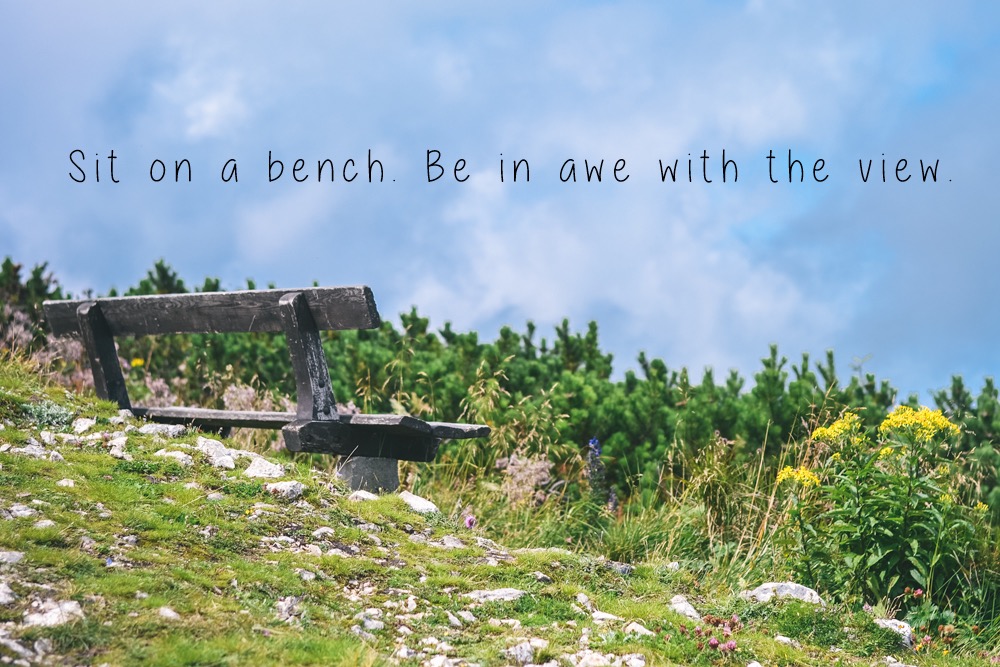

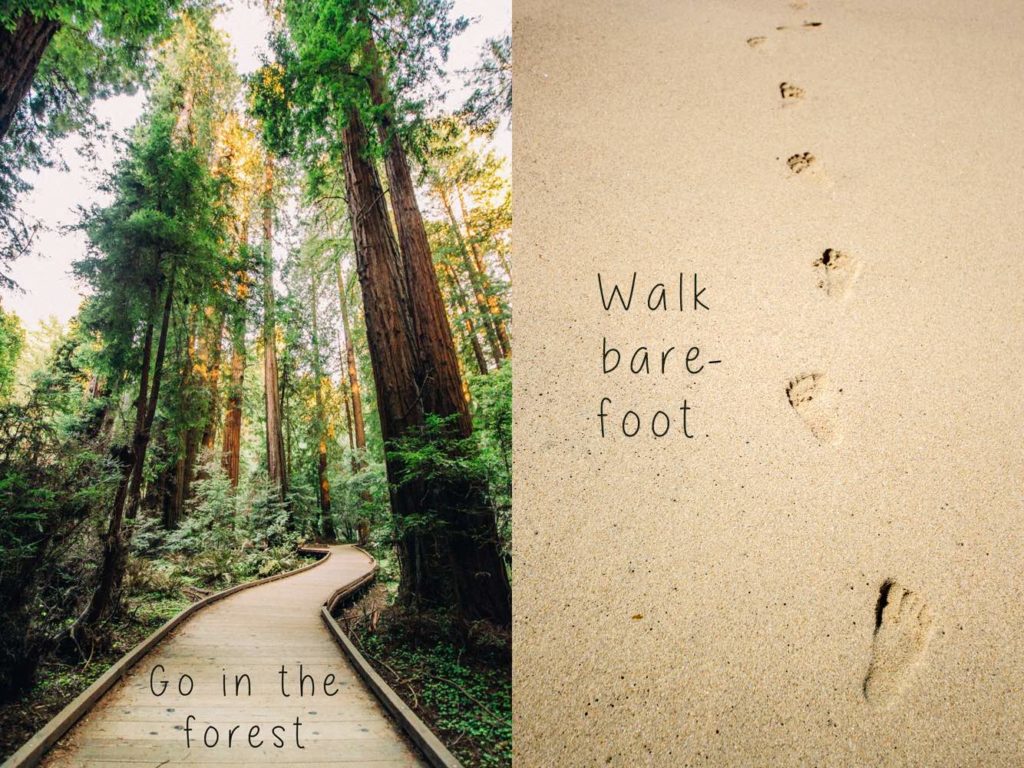
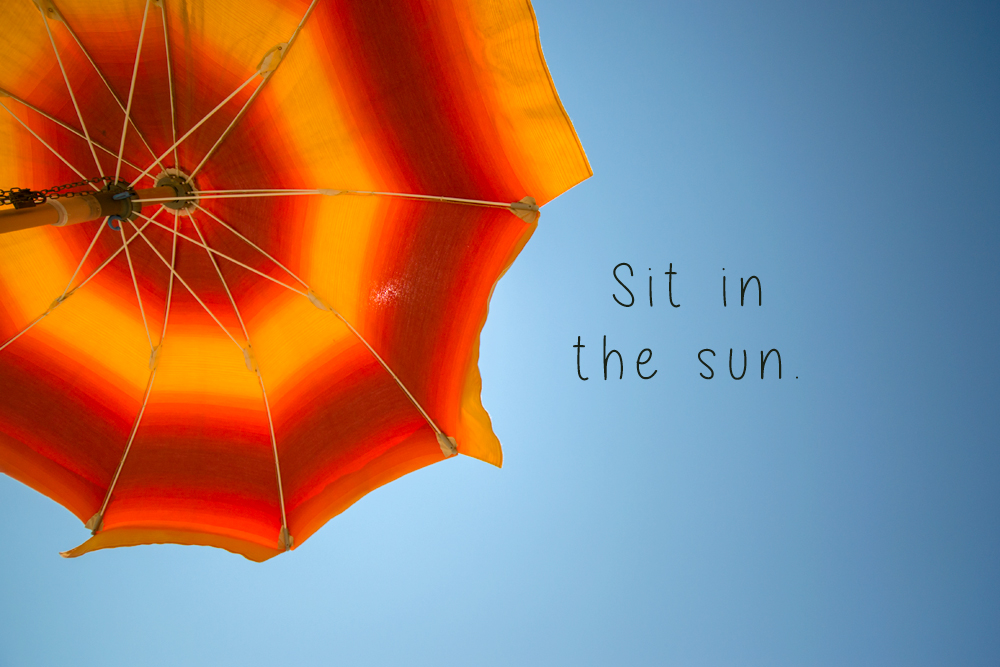

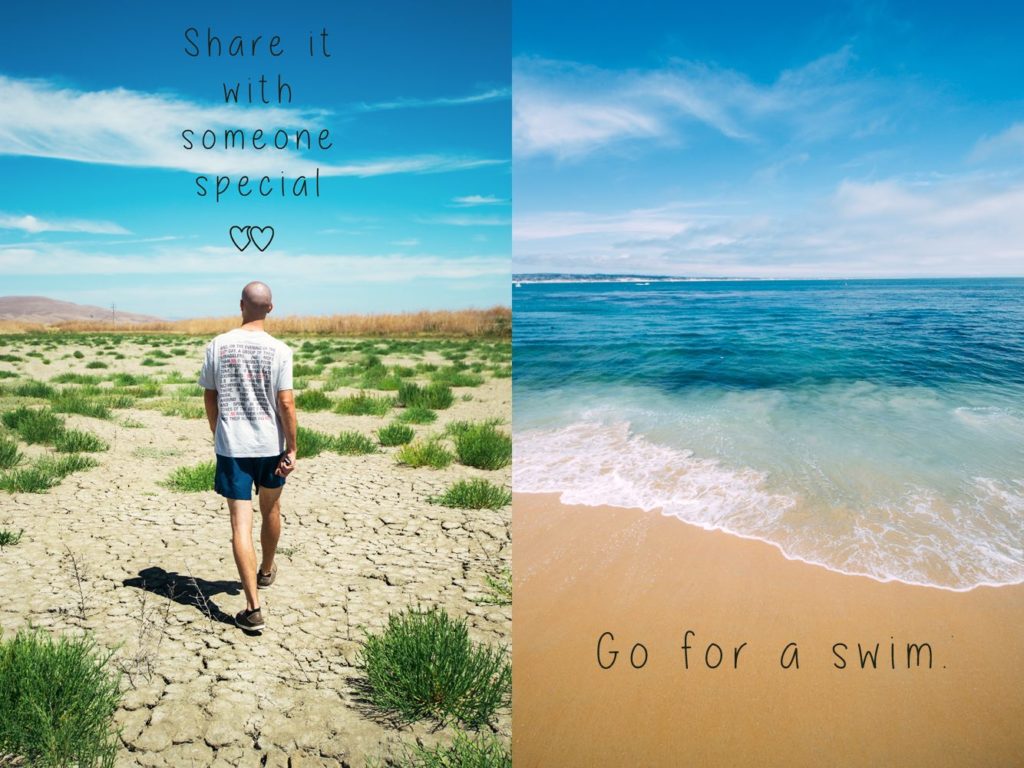
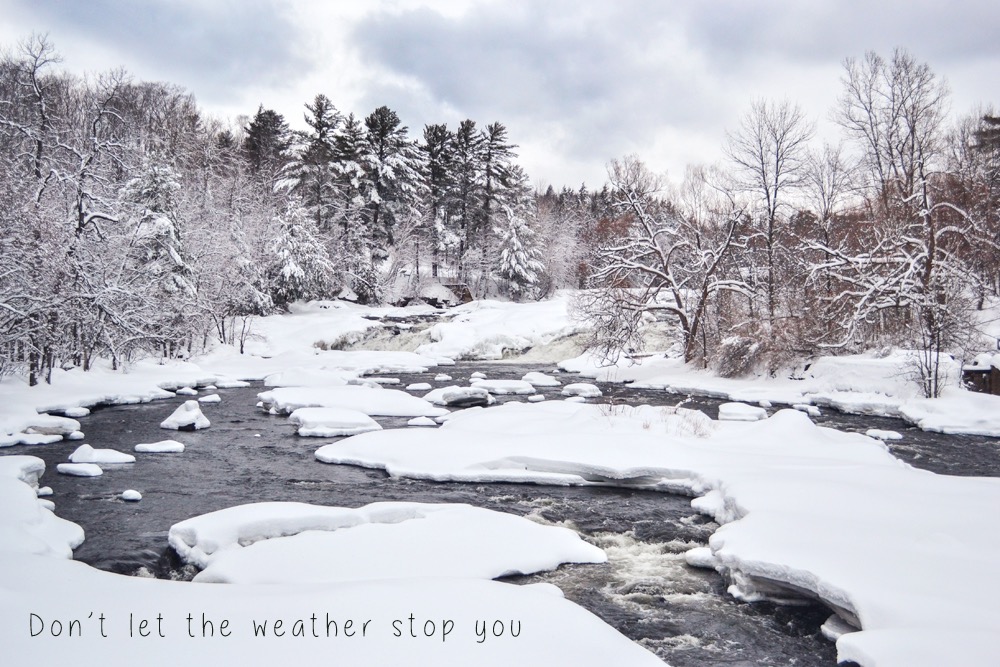
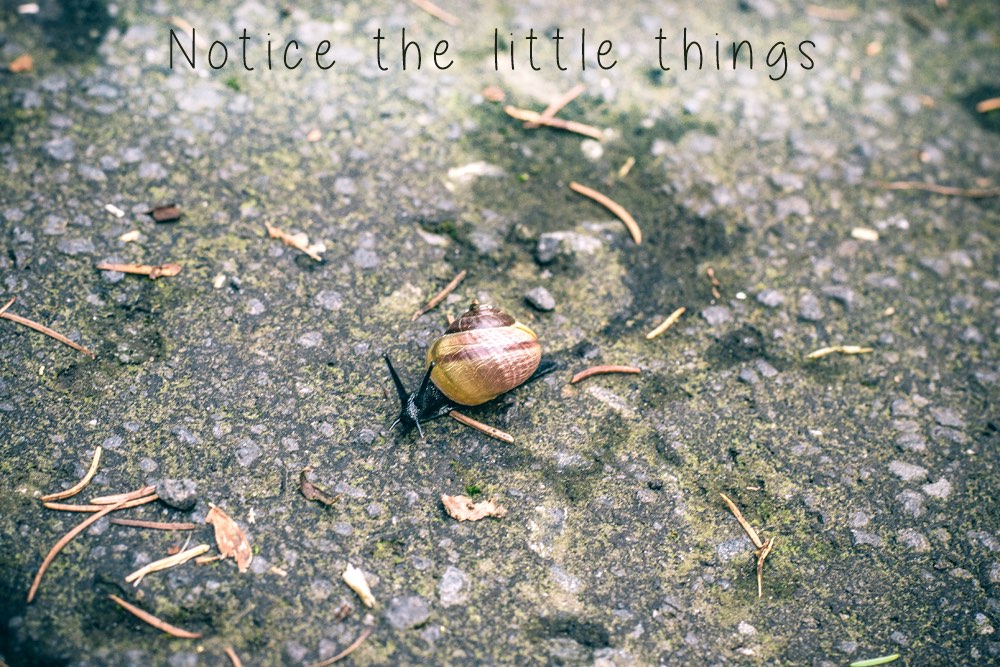

Nature for me relates to a few things…
- Unplugging. No computer, no phone, no internet, no “social” media…
- Quietness. No sensory overload, less noise, no cars, no loud music or voices…
- Mindfulness. No multi-tasking.
- Connection with others. It’s a great moment to have a deep conversation.
And those are some ways nature makes us happier. How do you feel when you spend time in nature? What nature setting do you prefer?
All right reserved.
All photos by Erika Belanger
References :
(1) Anon. 2007. Ecotherapy: The Green Agenda for Mental Health. Mind: For better mental health, London, pp., 36 pp.
(2) Richard M. Ryan, Netta Weinstein, Jessey Bernstein, Kirk Warren Brown, Louis Mistretta, Marylène Gagné. Vitalizing effects of being outdoors and in nature. Journal of Environmental Psychology, 2010; 30 (2): 159 DOI: 10.1016/j.jenvp.2009.10.009
(3) Jennifer E. Stellar, Neha John-Henderson, Craig L. Anderson, Amie M. Gordon, Galen D. McNeil, Dacher Keltner. Positive Affect and Markers of Inflammation: Discrete Positive Emotions Predict Lower Levels of Inflammatory Cytokines.. Emotion, 2015; DOI: 10.1037/emo0000033
(4) Kuo F and al. Potential Natural Treatment for Attention-Deficit/Hyperactivity Disorder: Evidence From a National Study. American Journal of Health, 2004, September; 94(9): 1580–1586.Alvarsson Et. al. Stress Recovery during Exposure to Nature Sound and Environmental Noise. International Journal of Environnement Reseach and Public Health. 2010 Mar; 7(3): 1036–1046. DOI: 10.3390/ijerph7031036

+ show Comments
- Hide Comments
add a comment